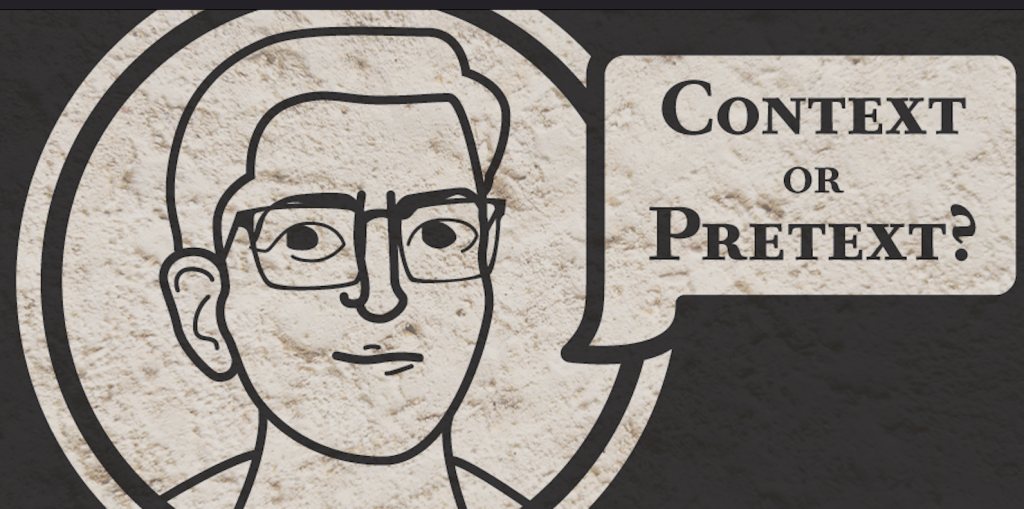Through a series of kitchen decorations, Instagram captions or sporting events, popular passages in Scripture become individualized to mean something different than originally intended by God. I personally remember specific instances of visiting different homes when I was younger. I’d walk through the mud room and into the kitchen where Philippians 4:13, “I can do all things through him who strengthens me,” hung above the sink as if reading the verse empowered one’s hands to wash dishes more effectively.
Of course, that specific way of interpreting the homeowner’s intent is cynical. But through growing conversations with other Christians throughout my time as a believer, I’ve noticed the common Christian doesn’t mind throwing a popular verse on a wall because it sounds cool or offers them a daily dose of surface-level religion.
Specifically with Philippians 4:13, Paul wrote to the church in Philippi, not to claim power, but to announce perseverance through persecution and God’s providence of support and resources when spreading the gospel.
Another area where people allow the misuse of Scripture is in sports. I grew up wrestling. My dad coached for the longest time, which proved to be one of the most challenging experiences during my lower education. I remember thinking of strength, specifically regarding Jacob wrestling God in Genesis 32, when I’d receive a quick forearm sliding across my face.
“The same struggle Jacob faced, I face now,” I’d tell myself. “I will earn respect just like Jacob did.”
Well, that’s certainly wrong. In Genesis 32:24-30, Jacob clearly didn’t win, but God gave him a marked timestamp so that Jacob could begin God’s creation of Israel. The passage exemplified God’s choosing of Jacob to act as the beginning of his chosen nation. After Jacob wrestled God in the form of a “man” for a whole night, God touched Jacob’s hip and broke it. Jacob persevered only to have his hip broken by a single touch.
So yes, I can wrestle and take every hit, grapple or take down from my opponent, but I don’t think Jacob’s wrestling God is a good scenario to compare my match with. Or at least I always hoped my opponent wouldn’t touch my hip after the whistle blew.
Another widely misapplied passage is David and Goliath. Fighting spiritual giants seems to act as the go-to ministry for American Christians when they refuse to actively share the gospel with those around them. Or Christians simply have a complete misunderstanding of the purpose of both David and Goliath in the story of God.
The Philistines were brutes desiring to be the top nation in every sense. They eventually found Israel an easy nation to fight considering its continual fear of others in combination with an insecurity in its all-powerful God.
On the battlefield, the Philistine’s greatest soldier, Goliath, steps up to blaspheme and downgrade the God above all. David delivers food to his brothers and overhears those sour words come from the giant’s mouth. He stands there, confused and utterly surprised that the nation of Israel would allow any man to insult his God. He says, “For who is this uncircumcised Philistine, that he should defy the armies of the living God?”
Saul, the king of Israel, called for David. No one else would fight Goliath on behalf of not only Israel but also God, the King of kings, himself. David, confidently defending his ability to destroy the Philistine, recalled to Saul how God gave David the power to defend sheep from lions and bears. He denied any help from man, walked to Goliath and used one of the most difficult weapons to master to kill the giant. Afterwards, the rest of Israel fought off the Philistines and took the land, shouting of God’s glory and power.

All of this for the glory of God. The end of a passage lies the goal and meaning. God desired his name to be glorified, and it was. God chose, he equipped and then he glorified himself through those whom he chose. There’s no need to individualize such Scripture and apply yourself into the text. Ask yourself, “Where in the rest of God’s word do I see I should apply myself into this story?” If the answer is nowhere, don’t make stretched analogies that make you want to “fight your giants.” If anything, take David’s humility and confidence in his God and apply it. David showed incredible amounts of faith — faith that God supplied through his grace and providence.
Of course, there are many other passages that people generally take out of context to reach their own goals of satisfaction. Understand the text, look for the defining principle and apply it. Before hanging up a verse on your living room wall or slapping on another bumper sticker, search a text through and through for its true intended meaning.
Duvall is the opinion editor for the Liberty Champion. Follow him on Twitter

